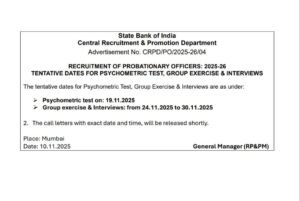The Government of India has reviewed the extant Foreign Direct Investment (FDI) policy. This amendment in the FDI policy has been made to curb the opportunistic takeovers/acquisitions of Indian companies due to the ongoing COVID-19 pandemic. To achieve this objective, the Government of India has amended the para 3.1.1 of extant FDI policy as contained in “Consolidated FDI Policy, 2017″.
The Department for Promotion of Industry and Internal Trade has officially issued a notice regarding the changes in the para 3.1.1 of the “Consolidated FDI Policy, 2017” with “Press Note No. 3(2020 Series)”. Here is the old as well as the new statements under para 3.1.1 of “Consolidated FDI Policy, 2017”.
Also Check,
- Want To Get Job-Ready Before Lockdown Ends? Here’s What To Do
- WARRIOR | Banking Awareness Batch for SBI, RRB, RBI and IBPS Exams
About the existing rules: Present Position
According to the Chapter:3 of the Consolidated FDI Policy, 2017, under the section titled “Eligible investors”, para 3.1.1 states that:
A non-resident entity can invest in India, subject to the FDI Policy except in those sectors/activities which are prohibited. However, a citizen of Bangladesh or an entity incorporated in Bangladesh can invest only under the Government route. Further, a citizen of Pakistan or an entity incorporated in Pakistan can invest, only under the Government route, in sectors/activities other than defence, space, atomic energy and sectors/activities prohibited for foreign investment.
After the amendement in the Para 3.1.1 of the Consolidated FDI Policy, 2017, para 3.1.1 (2020 Series) states that: Revised Position
Practice With,
3.1.1(a) A non-resident entity can invest in India, subject to the FDI Policy except in those sectors/activities which are prohibited. However, an entity of a country, which shares land border with India or where the beneficial owner of an investment into India is situated in or is a citizen of any such country, can invest only under the Government route. Further, a citizen of Pakistan or an entity incorporated in Pakistan can invest, only under the Government route, in sectors/activities other than defence, space, atomic energy and sectors/activities prohibited for foreign investment.
3.1.1(b) In the event of the transfer of ownership of any existing or future FDI in an entity in India, directly or indirectly, resulting in the beneficial ownership falling within the restriction/purview of the para 3.1.1(a), such subsequent change in beneficial ownership will also require Government approval.
| What is a Debenture? | Credit Rating Agencies in India | IMF releases “World Economic Outlook” |
Implementation of the above amendements:
The above revision in the para 3.1.1 of the “Consolidated FDI Policy, 2017” is supposed to be implemented from the date of Foreign Exchange Management Act (FEMA) notification.
Impact of the above amendments:
After the implementation of the above amendment, the new rules will prevent those entities of a country, which shares land border with India, from buying large stakes in Indian companies, either directly or through friendly nations and hence the new rules will curb the ‘Opportunistic Takeover or acquisition’ of Indian Companies when the whole nation is battling with the COVID-19 pandemic. The new rules will allow the non-resident entities of countries such as China, Bhutan, Nepal and various other nations, to invest in India only under the Government route, in sectors/activities other than defence, space, atomic energy and sectors/activities prohibited for foreign investment. These rules will support the Indian industry in this situation of pandemic. Therefore, in this manner, the Government of India has restricted the Neighboring Countries Firms from acquiring stake in Indian companies.
Click Here to Register for Bank Exams 2020 Preparation Material
Also Check,



 SBI PO Interview 2025 Dates Out, Check C...
SBI PO Interview 2025 Dates Out, Check C...
 How Knowledge of Current Affairs Can Boo...
How Knowledge of Current Affairs Can Boo...
 Documents Required for IB Security Assis...
Documents Required for IB Security Assis...








